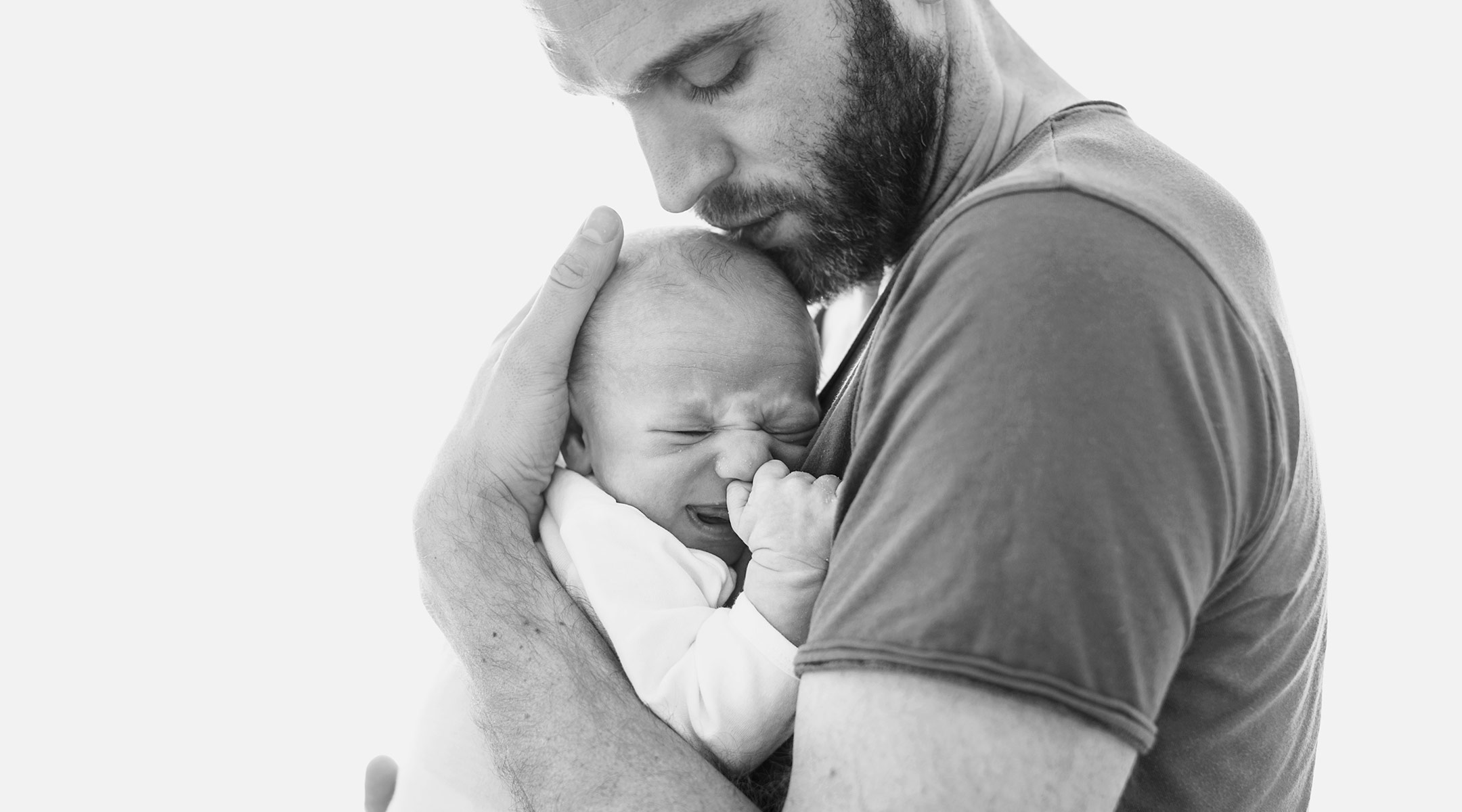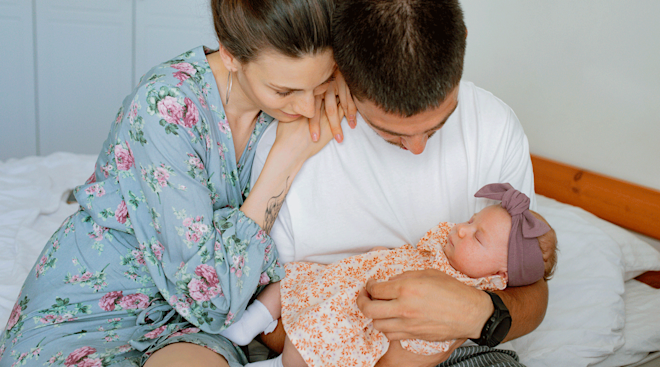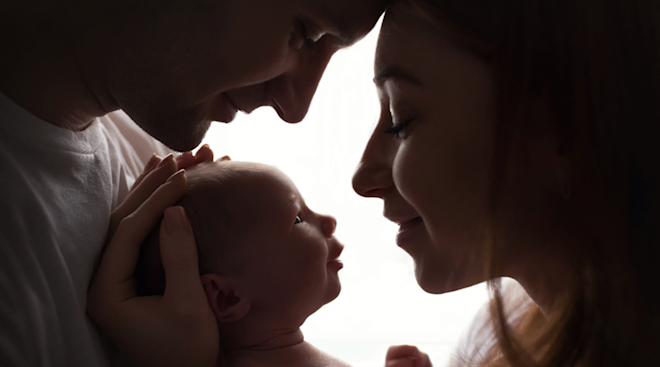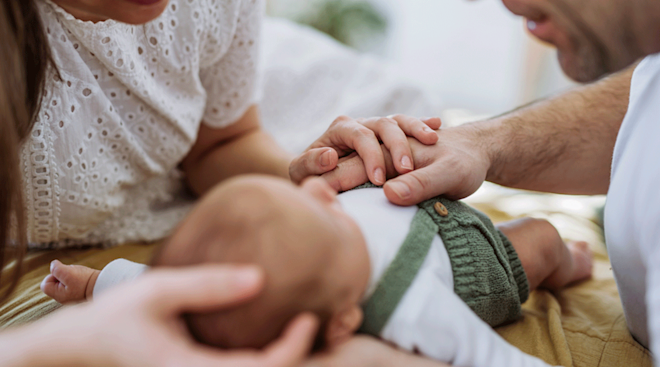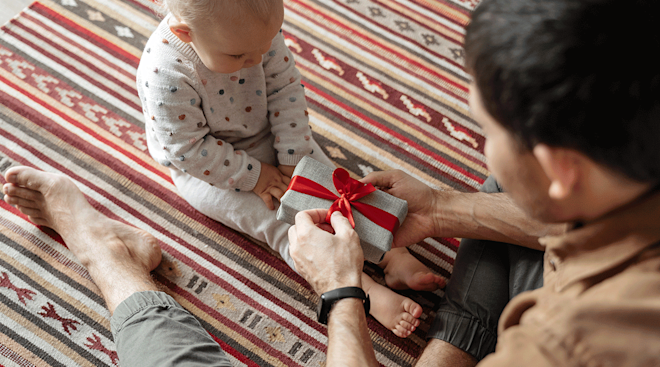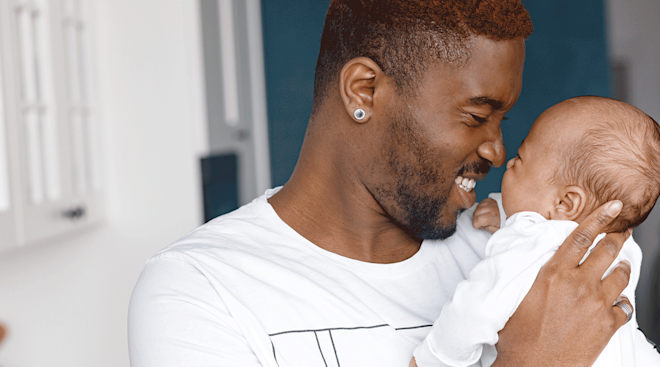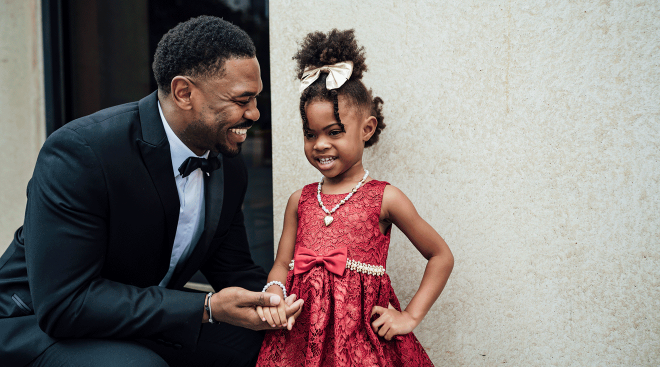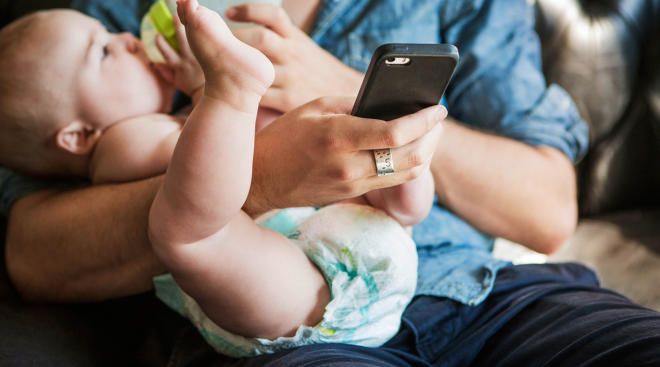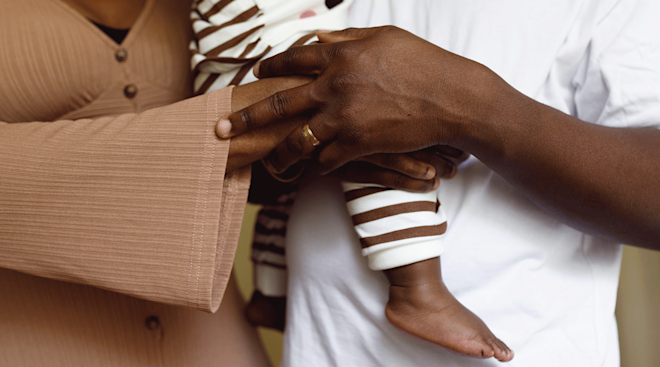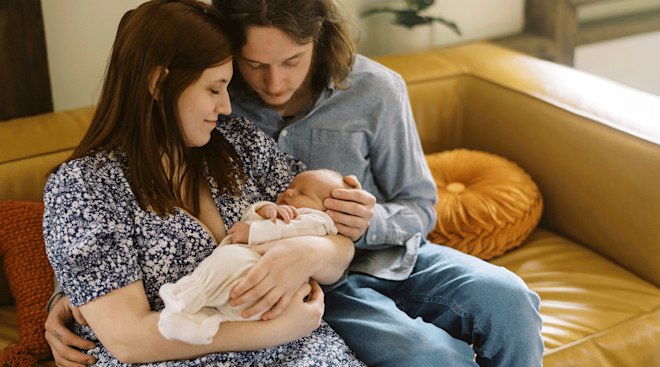What Dads Need to Know About Postpartum Depression in Men
After months of anticipation leading up to baby’s birth, your little one is finally here! You’re officially a dad, and you’ve never felt more…depressed. Not what you were expecting from fatherhood.
While the first weeks and months of being a new dad are built up to be an exciting (albeit exhausting) time, the truth is that up to 25 percent of men deal with postpartum depression, and if their partner has postpartum depression, the risk is even higher. “Postpartum depression and postpartum anxiety occur at about the same level of frequency in men as they do in women, but it’s identified even less in men than it is in women—and it’s already under-identified in women,” says Beth Orns, MSW, LCSW, a patient and family support services manager at University of Missouri Health Care.
In other words, postpartum depression in dads is a big issue that gets far too little attention. “Most of the attention in pregnancy is focused on mom and the baby, and that’s understandable,” says Brandon Eddy, assistant professor in the couple and family therapy Program at the University of Nevada, Las Vegas. “But we can forget that this can be a difficult, life-altering and intense experience for fathers as well.”
Whether you’re a new parent who’s already feeling down or a dad-to-be preparing for your future role as a parent, this guide will help you better understand postpartum depression in men so, if need be, you’re ready to take action.
Postpartum depression in men is similar to postpartum depression in women. It’s usually a combination of social issues, like feeling isolated and overwhelmed, and changes in hormones—that’s right, men go through hormonal changes after pregnancy too and experience lowered levels of testosterone.
One main difference between postpartum depression in men versus women is that women usually learn about the risk of post-pregnancy mental health changes from their doctors. Dads, on the other hand, tend to be unaware of the risk of depression, which can cause them to have difficulty identifying what’s going on. In fact, Eddy’s research found that men were often surprised to learn that other new dads experienced the same feelings of depression after the birth of a baby. “We associate baby blues with women, and so when something like this happens to fathers they don’t know what to think,” Eddy says. “it’s confusing for them.”
Triggers for postpartum depression in men include:
- Difficulty developing an attachment to the new baby
- A previous history of depression
- Having a partner who’s experiencing postpartum depression
- Lack of social support or assistance from family and friends
- Feeling excluded or jealous over a partner’s new relationship with the baby
- Financial or work stress and anxiety
- Lowered levels of testosterone
- Feeling overwhelmed by new parental responsibilities
- Sleep deprivation
There are certain red flags that new dads (and their partners) should be aware of that may indicate postpartum depression in men. These include:
- Feeling sad or anxious more days than not
- A loss of interest in hobbies, work or sex
- A lack of motivation
- Being easily agitated or irritated
- Difficulty concentrating
- Thoughts of self-harm or suicide
- Thoughts of hurting baby
- Changes in appetite or sleep
- Excessive crying
Just like with the condition in women, postpartum depression in men can be treated with medication (such as antidepressants), talk therapy or a combination of the two. Increased social support is also beneficial, and new dads are encouraged to reach out to close friends and family. Not only can they yank you out of new-parenthood isolation, but they can also lend a hand with baby duties. (It takes a village, right?)
If you suspect that you may be dealing with postpartum depression, it’s important to reach out to your doctor or a therapist instead of staying silent or “sucking it up.” “Men are conditioned to repress their feelings and are less likely to see a therapist or talk about their mental health,” says Eddy. But getting help isn’t just vital for a dad’s mental health; untreated depression can also have dire consequences for the new baby. Depressed dads are less likely to form an attachment with their child or engage with them. If you’re feeling down, you may not be in the mood for bonding activities like reading and singing to your newborn. This lack of attachment can have long-term consequences: Children of fathers who have depression are more likely to have emotional and behavioral problems when they’re older and also have an increased risk of developmental delays.
It’s not possible to prevent postpartum depression in men entirely, but there are steps that dads-to-be can take to lower their risk. These include:
- Getting adequate rest; sufficient shut-eye can be difficult to come by with a newborn, so consider asking a friend or family member to watch your child while you and your partner catch up on sleep
- Eating nutritious food and avoiding excess alcohol
- Exercising regularly
- Using stress-reduction techniques like meditation and mindfulness
- Having a good support system in place that you can turn to if you’re feeling depressed post-pregnancy
Getting together with friends or stealing time for the gym or a therapy session may feel indulgent during the first weeks of fatherhood, and you may be hesitant to miss out on those moments with your new baby—but it’s important. “Mental health issues are the most common complication of pregnancy,” says Orns, “but your infant needs you to be mentally healthy. Making the time to take care of yourself and seek help isn’t selfish, it’s actually being a good parent.”
Published October 2019
Please note: The Bump and the materials and information it contains are not intended to, and do not constitute, medical or other health advice or diagnosis and should not be used as such. You should always consult with a qualified physician or health professional about your specific circumstances.
Plus, more from The Bump:
Navigate forward to interact with the calendar and select a date. Press the question mark key to get the keyboard shortcuts for changing dates.
































